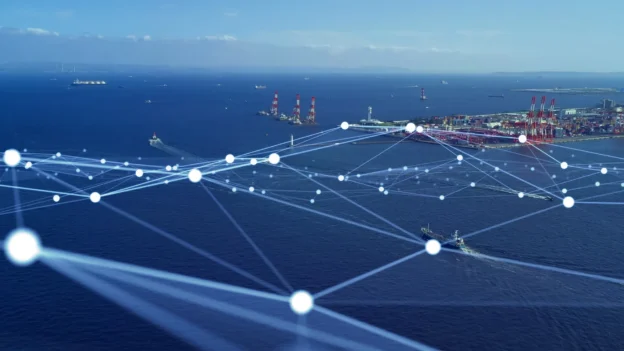Optimizing the use of marine terminals in the ever-evolving maritime industry is crucial to increase efficiency and reduce costs. The main objectives are to minimize berthing time and the costs associated with demurrage by ensuring that the ship/shore interface falls within tolerable levels of risk. By utilizing accurate and comprehensive data collection, terminal operators can make informed decisions that drive operational excellence.
Efficiently managing berthing events is one of the critical challenges in marine terminal operations, as delays can lead to significant financial losses and operational inefficiencies. The optimization approach focuses on minimizing dock downtime. By centralizing data collection, terminal operators can gain a holistic view of their operations, allowing them to identify bottlenecks and implement targeted improvements.
Accurate data collection is the cornerstone of this methodology. By capturing detailed information on vessel movements, cargo handling and terminal activities, a comprehensive data set is created. This data set is the basis for well-informed decision making. It allows terminal operators to visualize, anticipate and proactively address potential problems, significantly reducing the risk of delays and associated costs.
In addition, a single platform for information sharing facilitates seamless communication and collaboration between terminals and vessels, improving transparency and fostering cooperation. This improves operational efficiency, builds trust and strengthens relationships within the maritime community.
Terminal operators should confirm that the ship/shore interface conforms to the risk tolerance level well in advance of the ship’s arrival. Analyzing historical and real-time data can predict potential compatibility issues, providing useful information for terminal operators. This proactive approach ensures that all operations are executed within safe parameters, minimizing the risk of accidents and operational disruptions.
The benefits of a data-driven approach are evident in the significant efficiency improvements achieved by terminals. Some terminals have reported substantial annual savings through delay reduction, demonstrating the value of leveraging data to optimize terminal operations and inspiring optimism for potential cost savings and efficiency improvements in other operations.
In conclusion, optimizing the use of marine terminals requires a comprehensive, data-driven approach. By gathering accurate and detailed information, terminal operators can make informed decisions that improve efficiency, reduce costs and ensure safety. This commitment to innovation in the maritime industry, demonstrated by the adoption of a data-driven approach, helps achieve operational excellence and inspires a forward-looking mindset.
This article was developed by MIS Marine and published as part of the fourth edition of Inspenet Brief magazine December 2024, dedicated to technical content in the energy and industrial sector.

